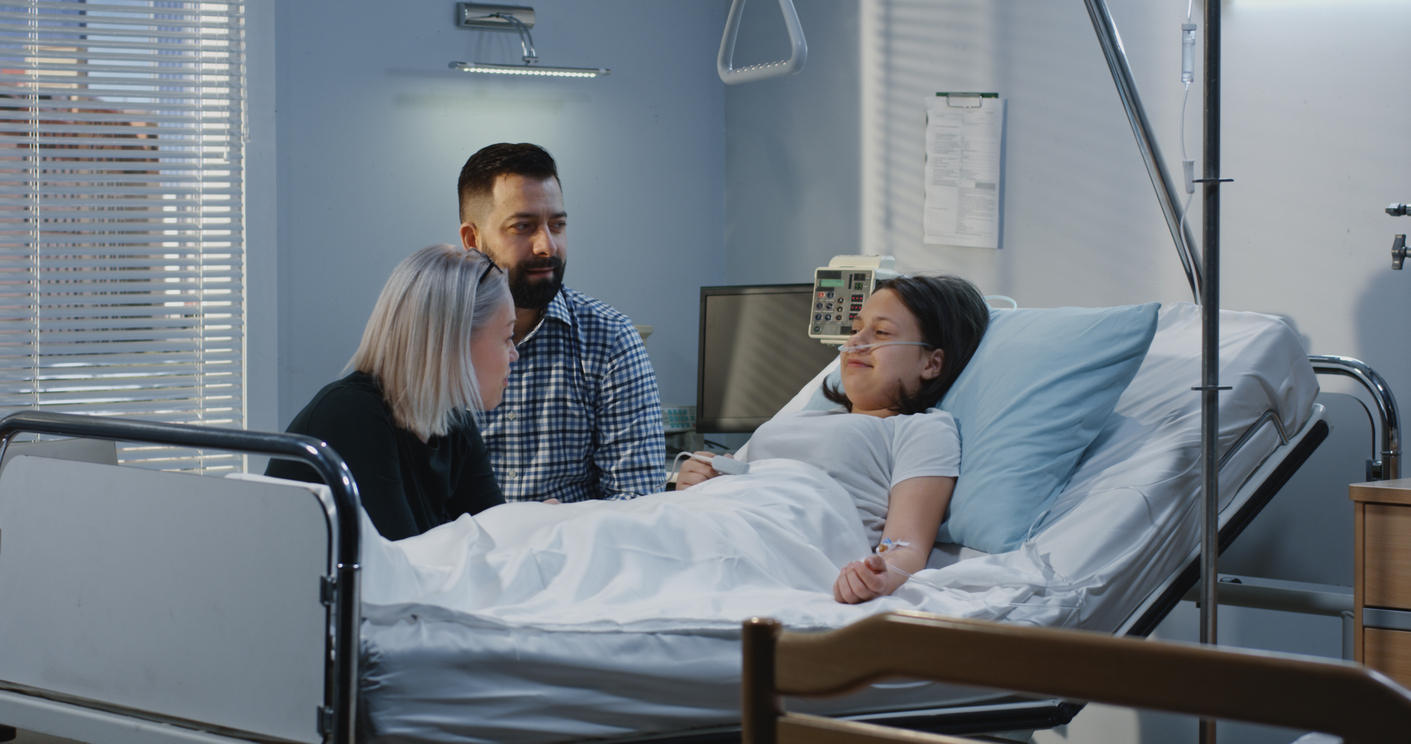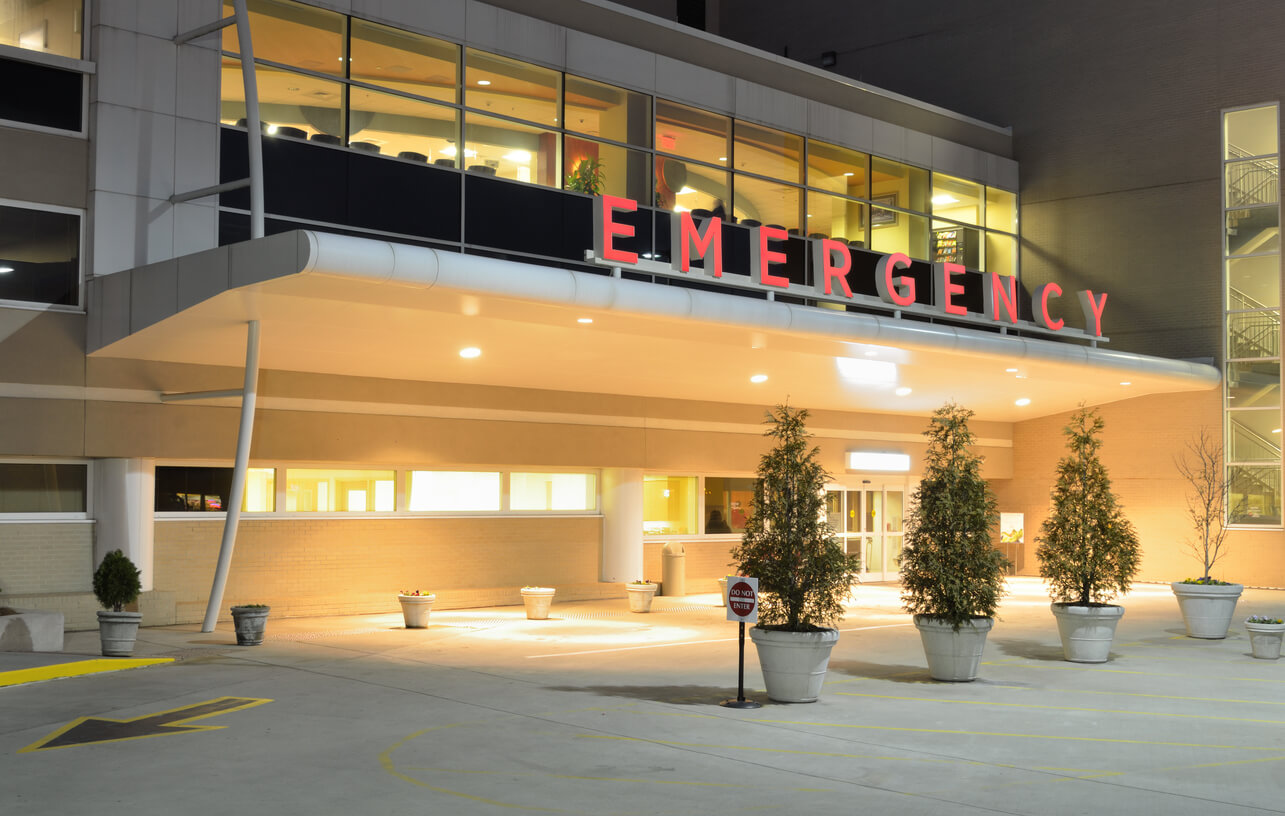It’s late in the evening, and you are feeling quite uncomfortable. Suddenly, you find yourself grappling with severe abdominal pain that won’t subside. As you weigh your options, confusion sets in: Should you rush to the nearest emergency room, or is an urgent care clinic sufficient for your situation? Knowing the key differences between urgent care vs. emergency room can help you make an informed decision when time is of the essence.
So, what should you consider when deciding where to seek treatment? Let’s explore the specifics to ensure you receive the appropriate level of care, minimize wait times, and avoid unnecessary medical expenses.
What Is an Emergency Room?
An emergency room (ER), also known as an emergency department, is a specialized medical facility within a hospital equipped to handle acute and life-threatening medical conditions. Its primary purpose is to provide immediate medical care to patients experiencing severe symptoms or injuries that require prompt medical attention to prevent serious health consequences or death.
What Is an Urgent Care?
An urgent care center is a medical facility that bridges the gap between traditional primary care and emergency room services. It offers convenient access to healthcare for non-life-threatening conditions that still require timely attention. These centers are designed to handle a variety of medical issues that are urgent but not severe enough to necessitate a visit to the emergency department.
ER vs Urgent Care: The Differences
1. Severity of Conditions
ERs are designed to handle severe, life-threatening conditions such as heart attacks, severe chest pain, traumatic injuries, strokes, severe burns, and uncontrolled bleeding. Urgent Care centers are suitable for non-life-threatening situations. They treat minor injuries, respiratory infections, urinary tract infections (UTIs), ear infections, mild asthma, minor burns, painful urination, and joint pain. These facilities provide same-day medical attention and are ideal for non-emergency medical services.
2. Wait Times
Due to the prioritization of life-threatening emergencies, wait times in ERs can be longer, especially for less critical conditions. Patients with minor illnesses might experience extended wait periods as more severe cases are treated first. Shorter wait times are one advantage of the Urgent Care clinic. Patients can often receive prompt attention for common conditions, making it a convenient option for non-emergency situations.
3. Cost
ER visits generally entail higher costs due to the complexity and intensity of care provided. These higher costs are often reflected in medical bills and insurance plan copayments. For the treatment of ailments that are not life-threatening, urgent care facilities provide a more affordable option. Insurance copayments and out-of-pocket costs are typically lower compared to ER visits, making urgent care a financially advantageous option for minor health issues.
4. Services Provided
ERs are equipped with advanced diagnostic services, surgery capabilities, and specialized treatment for severe conditions. The team of healthcare professionals at ERs includes specialized physicians, surgeons, and critical care experts. A variety of services are offered by urgent care facilities, including treatment for minor injuries, diagnostic services like X-rays and lab tests, and routine care such as sports physicals.
5. Operating Hours
ERs are open 24/7, ensuring that immediate care is available at all times, regardless of the day or hour. While many Urgent Care centers offer extended-hour medical care, some of them may not operate 24/7. It’s important to check the hours of your nearest urgent care clinic to ensure they meet your needs.
6. Types of Care
ERs offer comprehensive emergency care treatment for acute illnesses and injuries. They handle complex cases that require advanced medical equipment and the expertise of specialized physicians. Urgent Care centers focus on providing quick and effective treatment for a range of common conditions and minor health issues. They excel in offering timely care for conditions that are not severe enough for the ER but still require prompt attention.
When to Go to the Emergency Room
Consider heading to the ER if you encounter any of the following emergencies:
- Chest pain or intense pressure in the chest
- Severe abdominal pain or sudden, unbearable headaches
- Difficulty breathing or shortness of breath
- Uncontrolled bleeding, even with pressure applied
- Sudden confusion, weakness, or difficulty speaking
- Serious burns or deep wounds
- High fever that doesn’t respond to medication, especially in young children
- Seizures or loss of consciousness
- Severe allergic reactions with swelling, hives, or difficulty swallowing
Recognizing these critical signs and responding promptly can make a significant difference in outcomes. Your swift action can save a life.
When to Go to Urgent Care Center
Common conditions or symptoms you can address at an urgent care center include:
- Minor fractures and sprains
- Ear infections and sore throats
- Cuts needing stitches
- Mild to moderate asthma attacks
- Fever and flu-like symptoms
- Urinary tract infections
- Allergic reactions not involving anaphylaxis
- Skin rashes and infections
- Mild dehydration requiring IV fluids
Taking advantage of urgent care services ensures you get the timely medical attention you need without the stress of an emergency room visit.
Emergency Room vs. Urgent Care: Get Immediate Help When You Need It
Knowing when to visit urgent care vs. emergency room can greatly impact your health outcomes and ensure that you receive the appropriate level of care as quickly as possible. While emergency rooms are equipped to handle life-threatening conditions, urgent care centers provide a convenient solution for non-life-threatening issues. Making the right choice based on the severity of your condition can minimize wait times, lower healthcare costs, and ensure that you get the medical attention you need promptly.
At Reliant Emergency Room, our dedicated team of healthcare professionals is committed to providing exceptional, timely care for all medical emergencies. If you or a loved one experiences severe symptoms or a life-threatening condition, don’t hesitate to contact us immediately. No matter what age or situation, Reliant Emergency Room is here to provide prompt, expert care.
Your health and well-being are our top priorities, and we are here to serve you 24/7.








